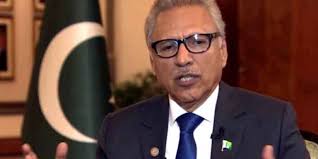Coronavirus kills Iranian religious leader again
Two days after the positive test, Ayatollah Hasham Baiu Golpaigin died and the death toll was more
than 850.

Iranian state media said the COVID-19 killed a member of the clerical organization that appointed the supreme leader, the country's latest official who died of a highly contagious disease caused by the new coronavirus.
At least 12 Iranian politicians and officials, both Sitting and the former, died of the disease, and 13 others were infected and in custody or under treatment.
Potential concern
According to official figures, the country has the highest number of people with the fastest spread of coronavirus in the country which has infected more than 14,000 people and killed 853 - 129 people in the last 24 hours.
The number of coronavirus deaths and infections has been increasing since the first two deaths were announced on February 19.
Iran's official response to the new coronavirus Sunday acknowledged that the pandemic was affecting healthcare in their country, which is fighting the worst outbreak in the Middle East amid US sanctions.
"If the trend continues, there is not enough capacity," said Ali Reza Jolly, head of the campaign against the outbreak, IRNA.
The capital Tehran is expected to have 110,000 hospital beds, including 30,000. Officials have decided to set up mobile clinics as needed.
Jolly acknowledged that most of those who died with COVID-19 were "healthy," although local authorities rarely acknowledged that the virus was sick and hunting for the elderly.
According to statistics from the Ministry of Health, 55 percent are over 60 years old and 15 percent are under 40 years of age.
Acute illness
For most people, the virus causes only mild or mild symptoms, such as fever and cough. For some people, especially the elderly and those with existing health problems, it can lead to more serious illnesses, including pneumonia. Most people recover within a few weeks.
The virus has infected more than 150,000 people worldwide and has killed more than 5,800 people. More than 70,000 people worldwide are infected.
In Iran, the virus has infected many dignitaries, including cabinet ministers, parliamentarians, members of the Islamic Revolutionary Guard Corps, and health officials.
Senior vice president Ishaq Jahangiri returned to work on Sunday after a negative test, the Presidency website said. He did not attend official meetings last week, and he was infected with the virus, the semi-official Force News Agency reported.
The power to follow the measures taken by other hardline countries is still slow. Iranian President Hassan Rouhani ruled on Sunday's general detention and said the government was working hard to keep the borders open.
Senior regional official for the World Health Organization, Dahlia Samhuri, said the two most populous countries in the Middle East, Iran and Egypt, are reducing cases due to the nature of the virus. There are no visible symptoms. There were 110 cases in Egypt, two of which were fatal.
"We can easily say that the current figures underestimate the actual figures," he said.
Humanitarian assistance:-
Iran has struggled to respond partly to the sanctions imposed by the Trump administration after the US pulled out of the 2015 nuclear deal. Iran has rejected the US claims of providing humanitarian aid.
Countries in the Middle East have imposed widespread travel restrictions, canceled public events and called for the closure of unnecessary businesses in the coming weeks.
Qatar has banned access to civilians for at least two weeks from Wednesday, with the government announcing a $ 23 billion economic stimulus in response to the new coronavirus.
The country was heavily impacted by the Gulf Cooperation Council (GCC), with 401 COVID-19 cases confirmed as of Sunday. It reported no serious incidents, but shut down universities, schools, gyms and theaters, and canceled many public events, including MotoGP.
Officials announced Sunday that all theaters, arcades and gyms will be closed by the end of this month in the skyscraper city of Dubai, the global trade and travel hub of the United Arab Emirates (UAE).
The UAE's capital, Abu Dhabi, closed its amusement parks and museums later this month, including the Louvre Abu Dhabi.
In Lebanon, police used loudspeakers to allow people to evacuate the city's famous Mediterranean boardwalk. The small country, which reported 99 cases and three deaths, has already closed all restaurants and nightclubs, suspended flights from many countries and tightened border controls. President Mitchelloun urged people to stay inside the house.
Jerusalem's Al-Aqsa Mosque is the latest in a series of religious sites, where access has been suspended or strictly limited. Saudi Arabia has halted Omar's pilgrimage to Mecca and Medina and may be forced to limit or cancel a much larger Hajj later this year.
On Sunday, it announced the temporary closure of all mosques and prayed Friday.





0 Comments
if you have any doubts, please let me know